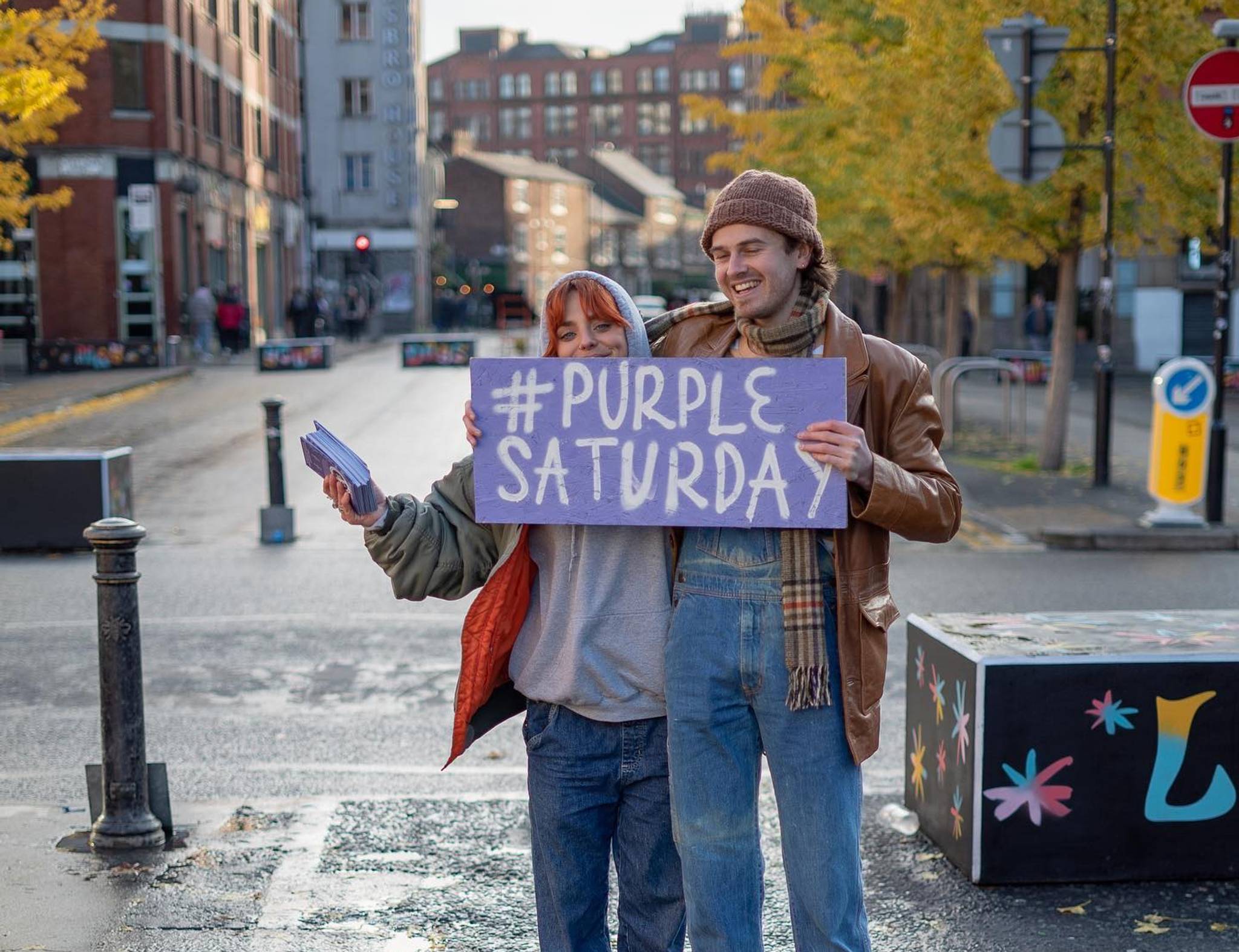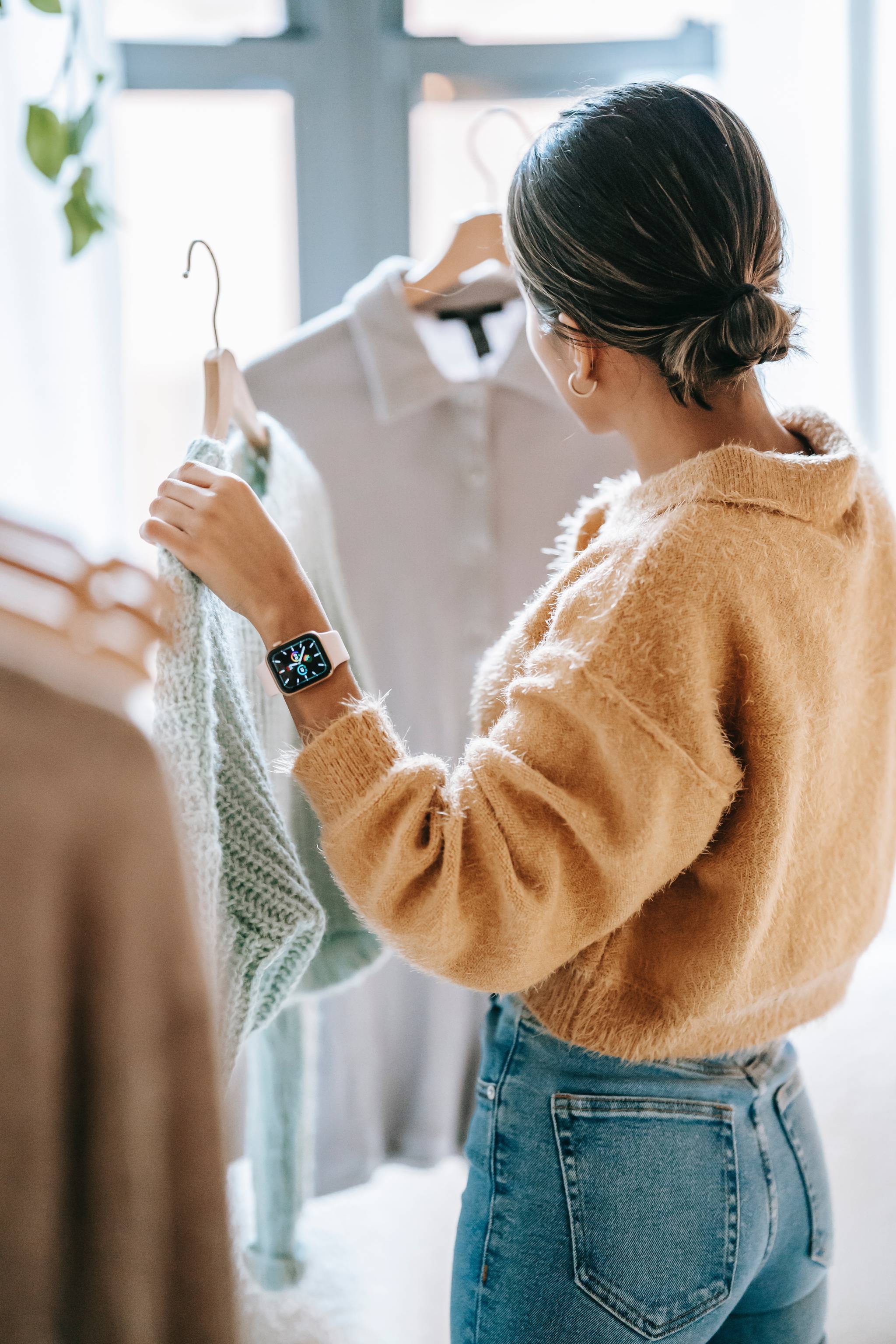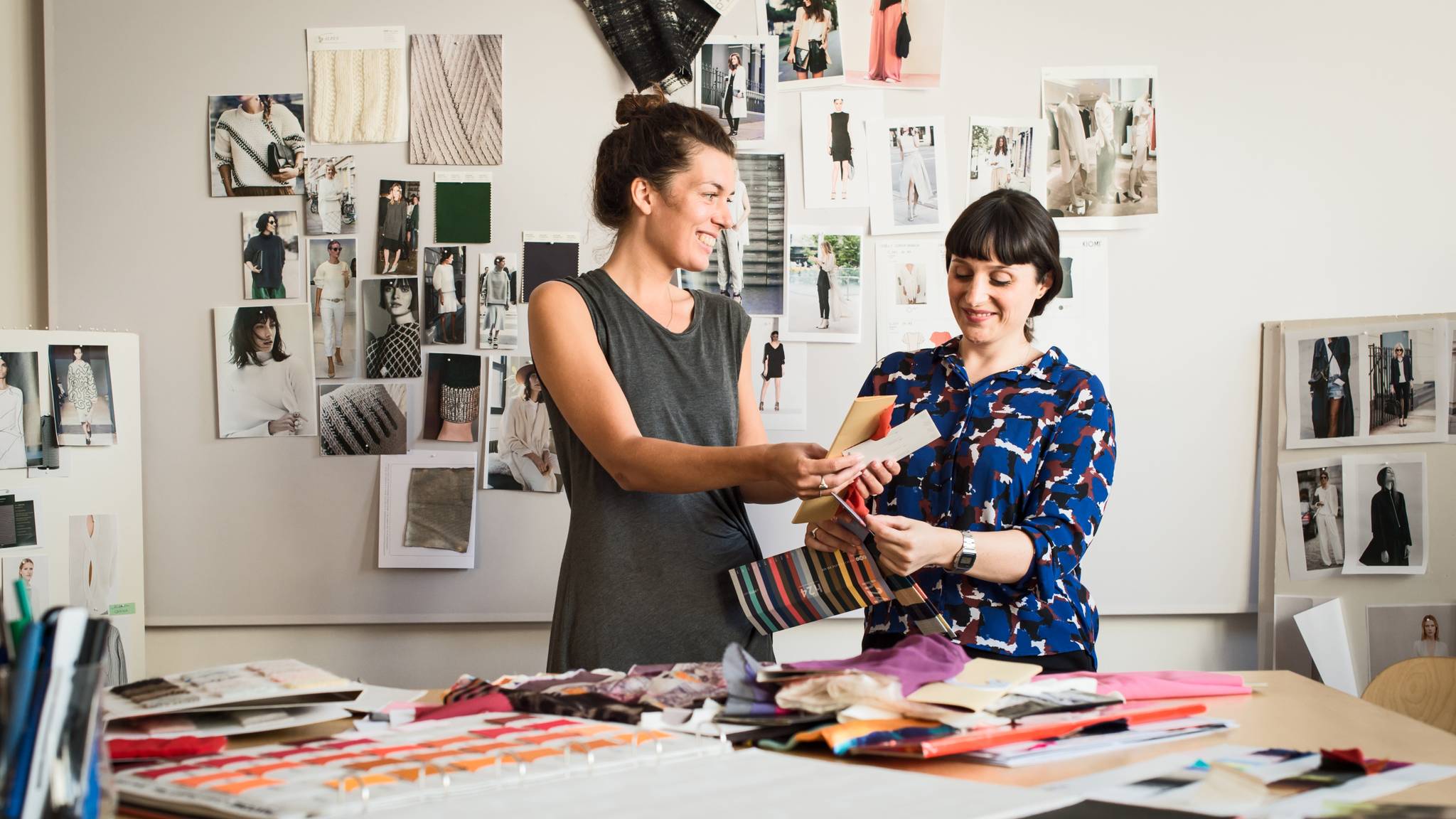
Despite an encroaching climate emergency and growing awareness of fashion’s sustainability shortfalls, people continue to shop with irresponsible brands. However, non-profits like Future Fashion Fair are looking to transform consumption habits and educate consumers to bring about a greener tomorrow.
In a move that can only be described as a greenwashing cash-grab, Boohoo announced in September 2022 that it was making Kourtney Kardashian Baker its sustainability ambassador. In short, the ultra-fast-fashion brand, which pays its workers in Pakistan 33 cents an hour to produce low-quality, low-value clothing for the mass market, teamed up with a private jet-using celebrity to draw ‘attention’ to the fashion industry’s sustainability shortcomings. Go figure.
H&M has also come under fire for greenwashing, facing potentially weighty legal consequences over false sustainability claims around its ‘Conscious Choice’ products – just another example of a multinational clothing brand being perpetually at odds with moves to boost the industry’s eco-credentials.
With several fast-fashion behemoths, including Boohoo, residing in Greater Manchester, small businesses and non-profits in the city are demonstrating resilience and resistance by foregrounding responsible business practices and bringing about grassroots-level change. As the co-founder and director of Future Fashion Fair, Joseph Mountain is working to slow down the fashion industry in the north of England while educating consumers on how to buy and live more responsibly. We caught up with him to find out more.
What are the Future Fashion Fair events? And what are they aiming to achieve?
The main objective of running the events is to raise awareness around the impacts of the fashion industry and give a platform for both customers and brands who are wanting to behave more responsibly but haven’t always been able to access the market. We aim to provide affordable and accessible clothing through the events, but also take an educational stance to give an insight into how and why change is necessary.
We aim to accelerate the adoption of conscious consumption, by doing so we can reduce the impacts the fashion industry has on people and the planet. Workshops, talks, swap shops, and social events help to stimulate that conversation and community. For us, it’s about getting to that regular mass-market consumer and giving them the knowledge and tools to make those decisions on how they consume and use clothes. The mass market doesn’t offer that and isn’t doing enough because, fundamentally, it’s driven by volume.
Why do you think fast fashion remains so popular despite climate concerns?
I think it's really simple. Fast fashion is convenient. It's constantly up to date with the latest trends and very affordable. That combination is what makes it so desirable. As consumers, we continue to demand ‘newness’, and the fast-fashion business model can provide for that demand at a rapid pace – having it on rail within weeks, sometimes days. Unfortunately, this directly impacts the countries that produce these products, varying from deforestation and water scarcity to poor working conditions and textile waste.
Education is so important in helping people make values-led decisions in their lives. If customers don't fully understand the direct impacts of buying, using, and disposing of clothes, then how can we expect them to know how to reduce these impacts? Accessibility is also key. Variety and opportunities offered to customers are often limited to ‘capsule collections’ or small businesses that can’t access the mass market. Fast fashion will typically offer ‘sustainable collections’ as a marketing scheme to demonstrate they’re tackling the issues. These are usually also styled and designed in such a way as to make the products seem ‘natural’ or ‘organic’, which has led to sustainable stereotypes and misleading information. The added costs of producing sustainable clothing can also make it unaffordable for many customers who can't justify the extra spending.
What positive changes are being made in Manchester and across the country regarding sustainable fashion?
I think with many major fast-fashion brands being based in Manchester, we’re seeing resilience from various groups and small businesses that are driving sustainable and responsible business practices in the north. We’re just one of a few non-profits based in the city focused on promoting design circularity and industry change within fashion. With this, the support of the council, and other green initiatives, a community for circularity is being created.
But of course, we still need support and an understanding of what we're trying to achieve. The circular economy isn't a particularly new concept, but it will take years for it to be fully integrated into society. I believe the next step is to create a cluster of like-minded individuals and drive toward that blue-sky thinking. This includes supporting local businesses, circular concepts, and business models and showing what value that can bring to neighbourhoods, communities, and cities. Through that, you will see positive change.
What are your predictions for the future of fashion?
Fashion influences everyone in one way or another, and because of that, I’m optimistic about how the industry can change. Circular systems have become a very real prospect for the way waste is utilised as a renewable resource, with research and development bringing many innovations to life.
Inevitably, the industry will have to have its hand forced by international and localised regulation, penalising those that don't comply with the standards that have to be met. The question is, how fast will they act? If we continue to produce and consume products at the same volumes, then we could be facing irreversible and detrimental problems. However, if we turn the tide, we could have an industry that thrives on robustness, longevity, and circularity. This can come through an appreciation of the abundant items that already exist and identifying the intrinsic or instrumental values within them.
That's why we believe the Future Fashion Fair is so important. It's not just about buying consciously, it's about creating an experience and environment in which people want to adopt values that can fundamentally change the way we think as humans – I believe by sharing those values we can create a more positive world to live in.
As the climate emergency becomes a pressing reality, fashion fans are increasingly looking to make more responsible style choices – according to Canvas8 research, 55% of Britons consider a brand’s environmental impact before shopping with them. However, amid a deepening cost of living crisis, affordability is taking precedence over green values, meaning people will continue to shop with fast-fashion brands unless provided with a viable green alternative.
Meeting this demand, peer-to-peer rental platforms like By Rotation are enabling people to get their fashion fixes more sustainably and constructing communities within the sharing economy in the process. Department store chain Selfridges has also thrown its hat in the ring, with a commitment to making half of its sales resale, repair, or refills by 2030, while e-commerce platform HEAT buys up surplus luxury fashion garments and repackages them in mystery boxes for hype-curious fashionistas. And with work from non-profits like Future Fashion Fair aiming to fundamentally change the way people consume clothing, these developments signify hope for fashion’s sustainable future.



